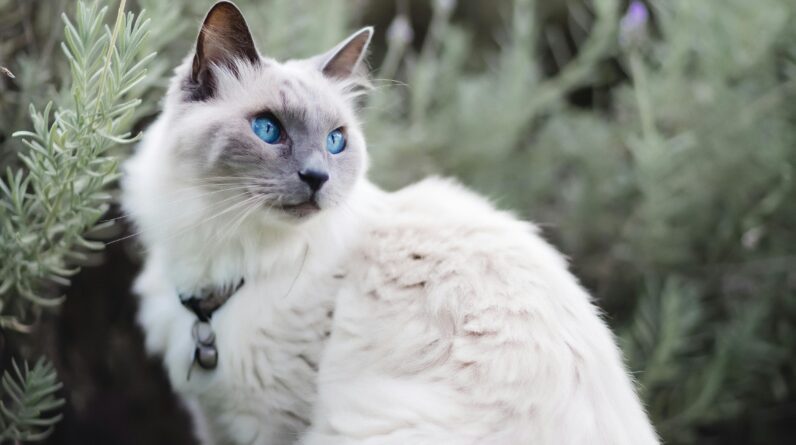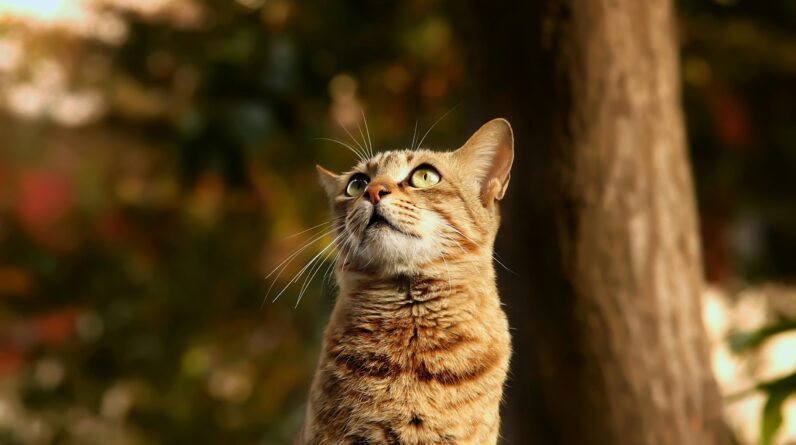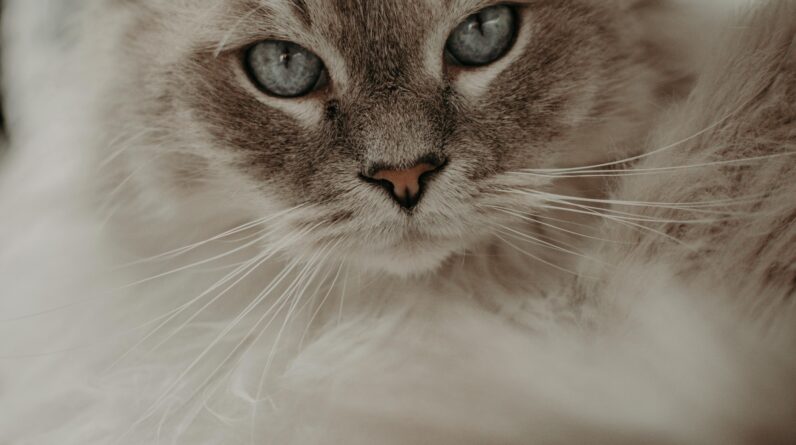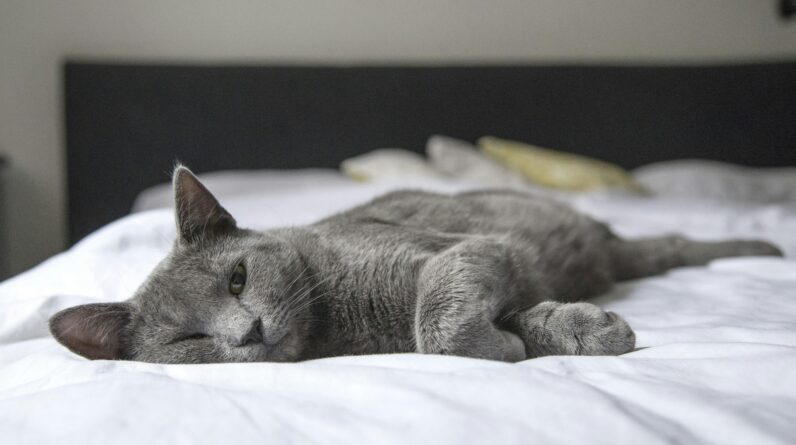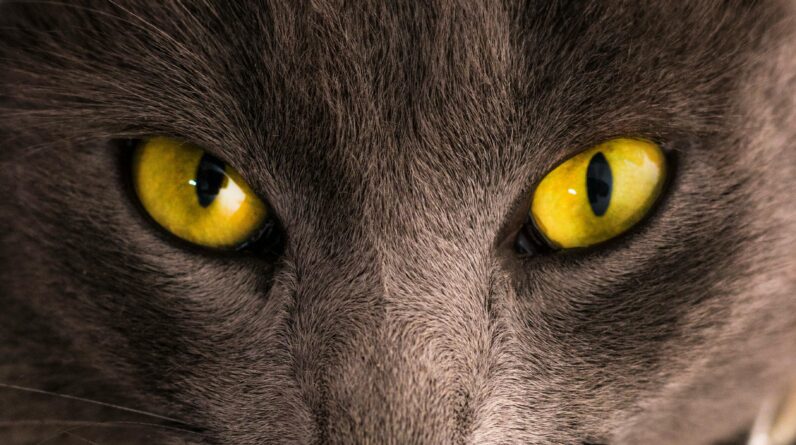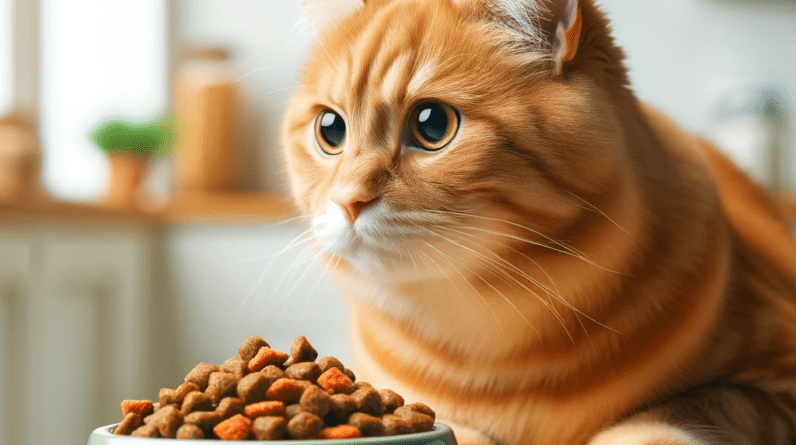
Ginger Cats and Common Digestive Problems: A Guide for Pet Owners
Ginger cats, with their striking orange fur, are not just visually appealing but also known for their friendly demeanor.
However, like all cats, they can experience digestive issues, which can be a cause for concern for their owners.
This article aims to shed light on common digestive problems in ginger cats, offering practical advice for pet owners.
Key Takeaways:
Groom Regularly: Frequent grooming reduces hairball formation, especially in long-haired ginger cats.
Monitor Diet: Watch for food sensitivities; consult a vet for diet changes if issues like vomiting or diarrhea occur.
Vet Check-ups: Regular veterinary visits are crucial for detecting and treating worms, parasites, and other health issues.
Ensure Hydration: Constant access to fresh water is essential for preventing constipation and maintaining digestive health.
Observe Symptoms: Be vigilant about changes in your cat’s health, such as persistent vomiting, diarrhea, or changes in appetite, and consult a vet promptly.
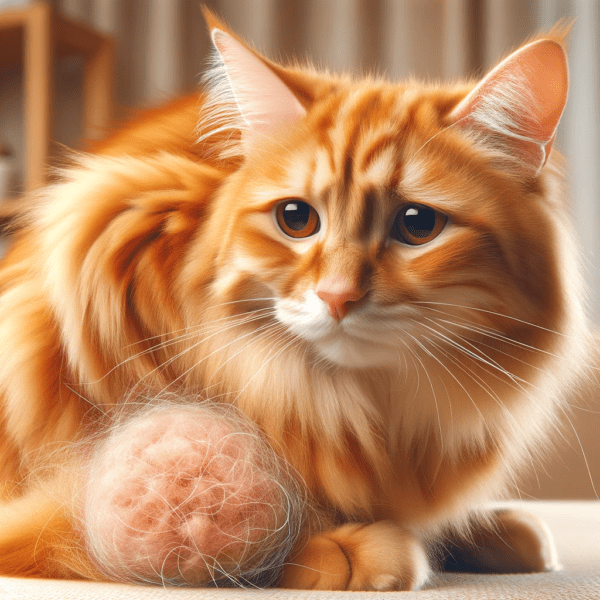

Understanding Ginger Cats
Firstly, it’s important to note that the term ‘ginger cat’ refers to the coat color and not a specific breed.
This coloring is due to a pigment called pheomelanin, similar to red hair in humans.
Interestingly, most ginger cats are male due to the genetic inheritance of their coat color.
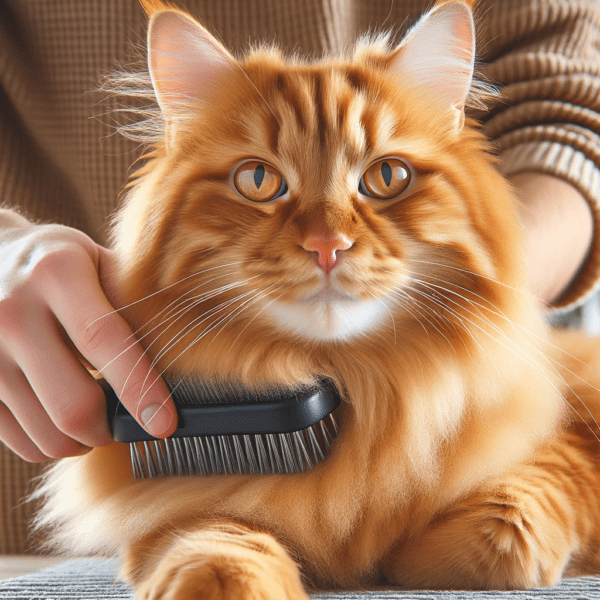

Common Digestive Issues
Ginger cats, with their distinct orange fur, are beloved pets.
However, they can encounter several digestive problems, similar to other cats.
These issues vary in severity and require different approaches for management and treatment.
Hairballs
Cats are meticulous groomers, and this habit often leads to the formation of hairballs.
When they groom, they swallow loose fur, which can accumulate in their digestive tract.
Usually, hairballs are harmless and pass through the cat’s system.
But sometimes, they can cause blockages or discomfort.
If your cat is coughing up hairballs frequently, it might be time to groom them more often or look into special hairball-control diets.
Dietary Sensitivities
Just like humans, some ginger cats might have sensitivities or allergies to certain ingredients in their food.
This can lead to digestive problems like vomiting, diarrhea, and upset stomach.
Common culprits include certain proteins, grains, or artificial additives.
If you notice these symptoms, it’s important to consult with your vet.
They might recommend a special diet or an elimination process to identify the offending ingredient.
Worms and Parasites
Cats, whether they venture outdoors or stay inside, are at risk of worms and other parasites.
These can cause a range of digestive issues, from mild discomfort to serious health problems.
Common signs include vomiting, diarrhea, weight loss, and a bloated abdomen.
Regular deworming and veterinary check-ups are crucial to keep these parasites at bay.
Constipation
This is a common problem in cats and can be caused by various factors.
Lack of exercise, inadequate water intake, and certain types of diets can contribute to constipation.
If your cat is having difficulty with bowel movements or seems to be in discomfort, it’s important to address their diet and hydration.
In some cases, your vet may recommend laxatives or other treatments.
Inflammatory Bowel Disease (IBD)
IBD in cats is a complex condition that leads to chronic irritation and inflammation in the gastrointestinal tract.
It can cause a range of symptoms, including diarrhea, vomiting, weight loss, and lethargy.
The exact cause of IBD is often unknown, but it can sometimes be managed with dietary changes, medication, and in some cases, steroids.
If you suspect your cat has IBD, it is vital to seek veterinary advice for proper diagnosis and treatment.
Ginger cats, like all cats, can experience a range of digestive issues.
It’s important to monitor their health and consult a vet if you notice any changes in their digestion or eating habits.
Regular vet visits, a balanced diet, and attentive care can help keep your ginger cat healthy and happy.
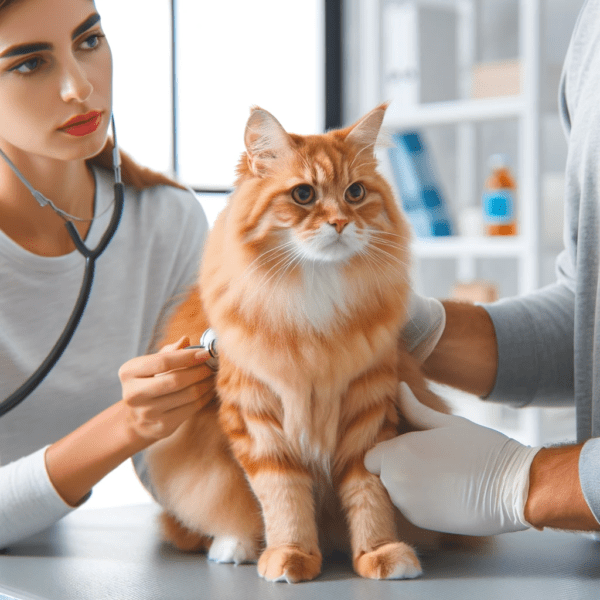

Prevention and Care
Regular Grooming
Hairballs are a common issue in cats.
To reduce their occurrence, groom your ginger cat regularly.
This is especially important for cats with long fur.
Regular grooming helps remove loose hair, which cats might otherwise ingest during self-grooming.
Use a cat-friendly brush to make grooming a pleasant experience for your pet.
This not only prevents hairballs but also keeps their coat shiny and healthy.
Diet Management
A proper diet is key to your cat’s digestive health.
Keep an eye on what you feed your ginger cat.
If they show signs of food sensitivity, such as vomiting or diarrhea, it might be time to reassess their diet.
Different cats have different dietary needs.
Consult with your vet to find the best diet for your cat.
This may include special cat food for sensitive stomachs or a hypoallergenic diet.
Routine Vet Check-ups
Regular visits to the vet are essential.
They help in the early detection and treatment of various issues, including worms and parasites.
These can cause serious health problems if left untreated.
Your vet can provide preventative treatments and check for any signs of digestive issues.
It’s a good practice to schedule routine check-ups at least once a year.
Hydration
Always make sure your cat has access to fresh water.
Good hydration is crucial for preventing constipation and maintaining overall digestive health.
Consider using a cat water fountain, as many cats prefer running water.
This encourages them to drink more frequently.
Proper hydration aids in digestion and helps flush out toxins from their body.
Attention to Symptoms
Pay attention to any changes in your cat’s health.
Symptoms like vomiting, diarrhea, changes in appetite, or weight loss can be signs of a health issue.
Don’t ignore these signs.
If they persist, take your cat to the vet.
Early detection can make a big difference in the treatment and management of potential health problems.
Remember, you know your cat best.
Trust your instincts if you feel something is off.
| Problem | Solution |
|---|---|
| Hairballs
| Regular grooming, especially for long-haired cats, and a diet rich in fiber to help pass hair through the digestive system. |
| Dietary Sensitivities
| Monitor diet closely and consult a vet for a specialized diet plan; consider hypoallergenic or limited-ingredient diets. |
| Worms and Parasites
| Regular veterinary check-ups for early detection and treatment, along with preventative medications as recommended by the vet. |
| Constipation
| Ensure constant access to fresh water, dietary adjustments to include more fiber, and encourage regular exercise. |
| Inflammatory Bowel Disease (IBD)
| Consult with a veterinarian for proper diagnosis and treatment, which may include dietary changes, medication, or in severe cases, steroids. |
While ginger cats are known for their charming looks and friendly nature, they are not immune to digestive problems.
Being aware of these issues and taking proactive steps in grooming, diet, and healthcare can ensure your ginger cat remains healthy and happy.
Regular vet visits and attentive care at home are key to managing and preventing digestive issues in these beautiful felines.
Remember, each cat is unique, and what works for one may not work for another.
Always consult with your veterinarian for advice tailored to your specific cat’s needs.
FAQs:
Q1: Are ginger cats more prone to digestive problems than other cats?
A1: No, ginger cats are not inherently more prone to digestive problems than cats with different fur colors.
Their digestive health is influenced by factors like diet, grooming habits, and overall health, similar to cats of other colors.
Q2: What are the most common digestive problems in ginger cats?
A2: Common digestive issues include hairballs, food sensitivities or allergies, worms and other parasites, constipation, and inflammatory bowel disease (IBD).
These are common in many cats, not just ginger ones.
Q3: How can I prevent hairballs in my ginger cat?
A3: Regular grooming, especially for long-haired breeds, can significantly reduce the formation of hairballs.
Providing a diet rich in fiber and ensuring adequate hydration can also help.
Q4: What should I feed my ginger cat to avoid digestive problems?
A4: Opt for a balanced, high-quality cat food appropriate for your cat’s age and health status.
Avoid sudden dietary changes and consult your vet if you suspect food sensitivities.
Q5: Can stress affect my ginger cat’s digestive health?
A5: Yes, stress can impact a cat’s digestive system, leading to issues like diarrhea or constipation.
Maintaining a calm and stable environment can help mitigate stress-related digestive problems.
Q6: How often should I take my ginger cat to the vet for digestive health?
A6: Regular check-ups, at least once a year, are recommended for monitoring your cat’s overall health, including digestion.
Immediate veterinary attention is needed if you notice any concerning symptoms.
Q7: Is dry or wet food better for my ginger cat’s digestion?
A7: Both dry and wet foods have their benefits.
Wet food can aid in hydration, which is beneficial for digestion, while dry food can be good for dental health.
The best choice depends on your cat’s individual needs and preferences.
Q8: Are hairball remedies safe for ginger cats?
A8: Most over-the-counter hairball remedies are safe, but it’s always best to consult with your vet before introducing any new supplements or treatments to your cat’s regimen.
Q9: Can ginger cats develop food allergies?
A9: Yes, like any cat, ginger cats can develop food allergies.
Symptoms can include itching, digestive discomfort, and changes in appetite.
If you suspect an allergy, consult your veterinarian for appropriate testing and dietary management.
Q10: Is it normal for a ginger cat to vomit occasionally?
A10: Occasional vomiting can be normal due to hairballs or minor digestive upsets.
However, frequent or chronic vomiting is a concern and should be evaluated by a vet to rule out serious digestive issues.


